Why choose Best Practice Network for your teacher training?
- Ofsted outstanding: we are a top-rated provider of the Department for Education’s teacher progression pathway, guiding you from your Initial Teacher Training through to executive headteacher roles
- 20+ years experience: training teachers and school leaders
- Subject & phase specific groups: as part of a leading national provider, you'll train alongside peers across the country, specific to your chosen specialism
- Local placement: benefit from our network of 500+ partner schools, giving you access to local, high-quality in-school placements
- Supporting wellbeing: our QTS-only pathway is designed to support your capacity and wellbeing as you transition into your teaching career
- Award-winning provider: Education Apprenticeship Training Provider of the Year (two years running!)
- 90% of our 2024/25 graduates secured employment for September
 12.png)
.png)
Meet the team!
Apply for Primary Specialisms
Choose from one of two age ranges – both are full-time.
| Specialism | Age Range |
| Primary | 3-7 years |
| Primary | 5-11 years |
Apply now for the next intake!
Congratulations! You appear to be eligible to apply. Please click the link below to begin your application
Unfortunately, you do not appear to be eligible.
Please contact our team to discuss your options.
To apply, you must have lived in the UK for the last 3 consecutive years.
Question 1: Have you lived in the UK for at least the last 3 consecutive years?
To apply, you must have have the right to work and study in the UK.
Question 2: Do you have the right to work and study in the UK?
To join this programme, you must have one of the following:
-
GCSEs in English, maths and science at Grade 4 (C) or above
-
Equivalency tests for English, maths and science at GCSE level
-
International qualifications equivalent to GCSE English, maths and science as assessed by UK ENIC (comparability Statement)
Question 3: Do you hold these GCSEs or equivalent qualifications?
To join this programme, you must hold a bachelor’s degree (or equivalent) in any subject, awarded at a minimum classification of 2:2.
Question 4: Do you have a bachelor's degree awarded at a minimum classification of 2:2?
Apply for SEND Teacher Training
Apply for SEND Specialisms
Choose from one of two age ranges – both are full-time. You will be matched to the stage that your pupils are working at, rather than their chronological age.
| Specialism | Curriculum pathway |
| SEND | 3-7 curriculum pathway |
| SEND | 5-11 curriculum pathway |
Please apply now for the next intake!
Congratulations! You appear to be eligible to apply. Please click the link below to begin your application
To apply, you must have lived in the UK for the last 3 consecutive years.
Question 1: Have you lived in the UK for at least the last 3 consecutive years?
To apply, you must have have the right to work and study in the UK.
Question 2: Do you have the right to work and study in the UK?
To join this programme, you must have one of the following:
-
GCSEs in English, maths and science at Grade 4 (C) or above
-
Equivalency tests for English, maths and science at GCSE level
-
International qualifications equivalent to GCSE English, maths and science as assessed by UK ENIC (comparability Statement)
Question 3: Do you hold these GCSEs or equivalent qualifications?
To join this programme, you must hold a bachelor’s degree (or equivalent) in any subject, awarded at a minimum classification of 2:2.
Question 4: Do you have a bachelor's degree awarded at a minimum classification of 2:2?
Apply for Secondary Specialisms
Our programme prepares you for a lifelong career as a secondary teacher and specialist within your chosen subject, teaching up to GCSE level. Additionally, we offer post-16 enhancement to provide you with the skills to teach your subject at A Level, expanding your expertise and teaching opportunities.
| Specialism | Age Range | Start dates |
| Biology | Secondary 11-16 | January or September 2026 |
| Chemistry | Secondary 11-16 | January or September 2026 |
| Computing | Secondary 11-16 | January or September 2026 |
| English | Secondary 11-16 | September 2026 |
| French | Secondary 11-16 | January or September 2026 |
| Geography | Secondary 11-16 | September 2026 |
| Maths | Secondary 11-16 | January or September 2026 |
| Spanish | Secondary 11-16 | January or September 2026 |
| Spanish and German | Secondary 11-16 | January or September 2026 |
| Spanish and French | Secondary 11-16 | January or September 2026 |
| German and French | Secondary 11-16 | January or September 2026 |
Apply now for the next intake!
Congratulations! You appear to be eligible to apply. Please click the link below to begin your application
Apply for Biology Apply for Chemistry Apply for Computing Apply for English Apply for French and German
Apply for French Apply for Geography Apply for Maths Apply for Spanish Apply for Spanish and German Apply for Spanish and French
To apply, you must have lived in the UK for the last 3 consecutive years.
Question 1: Have you lived in the UK for at least the last 3 consecutive years?
To apply, you must have have the right to work and study in the UK.
Question 2: Do you have the right to work and study in the UK?
To join this programme, you must have one of the following:
-
GCSEs in English, maths and science at Grade 4 (C) or above
-
Equivalency tests for English, maths and science at GCSE level
-
International qualifications equivalent to GCSE English, maths and science as assessed by UK ENIC (comparability Statement)
Question 3: Do you hold these GCSEs or equivalent qualifications?
To join this programme, you must hold a bachelor’s degree (or equivalent) in any subject, awarded at a minimum classification of 2:2.
Question 4: Do you have a bachelor's degree awarded at a minimum classification of 2:2?
Subject Knowledge Enhancement SKE
If you are considering a secondary specialism, you might need to do a subject knowledge enhancement (SKE) course before you start your teacher training to top up your subject knowledge. This could be because you have (one or more of the following):
- A degree in your subject but have not used your degree knowledge for more than 5 years
- a different but related degree to the subject you want to teach
- an A level but not a degree in the subject you want to teach
- an unrelated degree but relevant professional experience
- studied for a languages degree, but need to improve knowledge either in a main language, second language or both to an acceptable level for teaching in schools
SKE courses are fully funded by the DfE, and eligible candidates receive an SKE bursary. As part of your interview, we will review your subject knowledge and if we identify you need to enhance your knowledge prior to starting your training. This will form part of your condition of entry to the programme.
You can find out more about SKE courses in this SKE Trainee Brochure.
ITT FAQs
To join our Initial Teacher Training programme, you must have the right to study and work in the UK. If you require a visa to study or work in the UK, unfortunately, we cannot sponsor visas.
For the Postgraduate Teacher Apprenticeship, you must have held UK residency for a minimum of 3 years.
- An honours degree from a UK Higher Education Institution at 2:2 or above. You will also need GCSE English and maths grade 4 (C) or above (or equivalent*).
- You will also need GCSE Science grade 4 (C) if you are studying Primary
*If you hold Level 2 Functional Skills, Key Skills or another maths or English qualification, you will need still need to complete GCSE Equivalency testing to meet the ITT entry requirements.
**GCSE equivalent does not include Functional or Key Skills for the purpose of meeting the ITT requirements. Please do give us a ring to discuss further.
You will need to apply to ENIC for a certificate of equivalency, and we will check that against the regulations that the government sets for entry into the profession.
You'll need to apply for an equivalency GCSE.
We accept equivalency tests from:
- A* Star Teachers www.astarteachers.co.uk
- Equivalency Testing www.equivalencytesting.co.uk
- Maths Made Easy www.mathsmadeeasy.co.uk
(This will be at your own cost).
If you also have non-UK GCSE equivalent examinations, send all of your certificates together.
(This will be at your own cost).
No. Although these are Level 2 qualifications, as are GCSEs, they do not cover the same breadth of knowledge so cannot be accepted as equivalent to a GCSE.
We aim to place all trainees no more than 45-minute travel away from home.
We will take into consideration your needs, in order to ensure we choose the right placement for you.
No – you only need QTS to be employed as a qualified teacher, which you achieve on successful completion of our course. A PGCE is an additional academic qualification awarded by a university which some providers offer alongside QTS.
Fee-funded is through a student loan and as you will be classed as full-time student, this would be unsalaried. The apprenticeship route would allow you to be paid a wage and your employer would cover the cost of the programme through the Apprenticeship Levy Fund.
Although not essential, prior school experience will strengthen your application and provide you with an invaluable insight into what teaching is really like and the role and responsibilities of a classroom teacher.
Contact schools who know you or local schools asking who the appropriate contact is. Be flexible. Schools are busy places and so might not always offer you exactly what you requested. Volunteering is a great option if your schedule permits.
Schools may require a DBS check as a matter of policy and you will need this as a trainee teacher. It would be wise to obtain this as soon as possible as they can take weeks to complete.
No, we are only offering the postgraduate fee-funded and employment based (apprenticeship) route.
There is no ‘best route’ into teaching. The question is which is the best route into teaching for you? This may depend on your own personal situation.
We’re looking for people who want to become outstanding teachers; people who genuinely enjoy working with children and young people; people who are passionate about education and who are relentless in their drive to ensure positive outcomes for children.
Further essential qualities are outstanding organisation and communication skills, resilience, a proactive reflective approach and good interpersonal skills. You should also have determination and energy, high standards of English, maths and excellent subject knowledge.
You will benefit from bespoke weekly core training days with your fellow trainees, additional tailored subject-specific training days, a school-based mentor and a personal Best Practice Network tutor, as well as support from a knowledgeable and accessible programme team including a placement coordinator who will arrange your second placement in a contrasting school environment.
There are several pathways for you to consider.
Primary
You will be able to specialise in the key stage 1 and 2 provision (3-7 or 5-11) including SEN provision.
The 3-7 route encompass early years specialism and your placements will take place in early years and key stage 1. The 5-11 route specialises in the curriculum across the entire primary phase meaning your placements will take place in key stage 1 and key stage 2 classes. Both routes lead to QTS meaning you will be qualified to teach across the primary phase regardless of which route you take.
Secondary
You will be able to specialise in the key stage 3 and 4 provision (11-16 or 14-19).
You will select your subject specialism (English, maths, chemistry, physics, biology, computing, geography, French or Spanish). Trainees must have taught classes to pupils in two schools prior to the award of QTS. The duration of the ‘second school’ placement is dependent on your ITT route. All routes lead to QTS meaning you will be qualified to teach across the secondary phase regardless of which route you take or subject specialism.
Yes, you would be eligible for QTS. We would recommend you consider the apprenticeship route if your current workplace setting offers Key stage 1 +
Any offer we make will be conditional on health checks, disclosure and barring check (DBS) and completing mandatory safeguarding online course.
The selection process will check your competence in spoken and written English.
If you have a master's without a degree, you will have to demonstrate the breadth and time of the academic engagement that would be expected to meet 1st degree study and would not be less than 3 years.
You will be eligible if you have:
- The right to work in the UK / settlement status
- Have held a residency in the UK for the last 3 years
We do not offer this as a course.
The amount of teaching builds up over the year. For example in the first module they would start by team teaching and working with groups or in more of a supportive role like a Teaching Assistant.
We will look at this on a case-by-case basis. We recognise that there are circumstances where a trainee undertakes ITT to take up a particular teaching role in a specific school and that this is sometimes a role in a special school. Accredited ITT providers and their lead partners should use their expertise and judgement to decide whether a primary or secondary ITT course would be most appropriate for the context in which the trainee will be working as an ECT. For example, we accept that there may be circumstances where primary ITT is more appropriate for a trainee who is preparing for a particular role in a secondary special school. Consideration should also be given to the trainee’s long term career ambitions in the teaching profession.
No, as you have already achieved QTS.
Join our interest list
Interested in becoming a teacher? Register your interest below and be the first to hear about future intakes.
Latest from the BPN Blog
Get inspired by stories and insights from our teacher training community, from practical classroom advice to case studies from our student teachers.


(1).png)

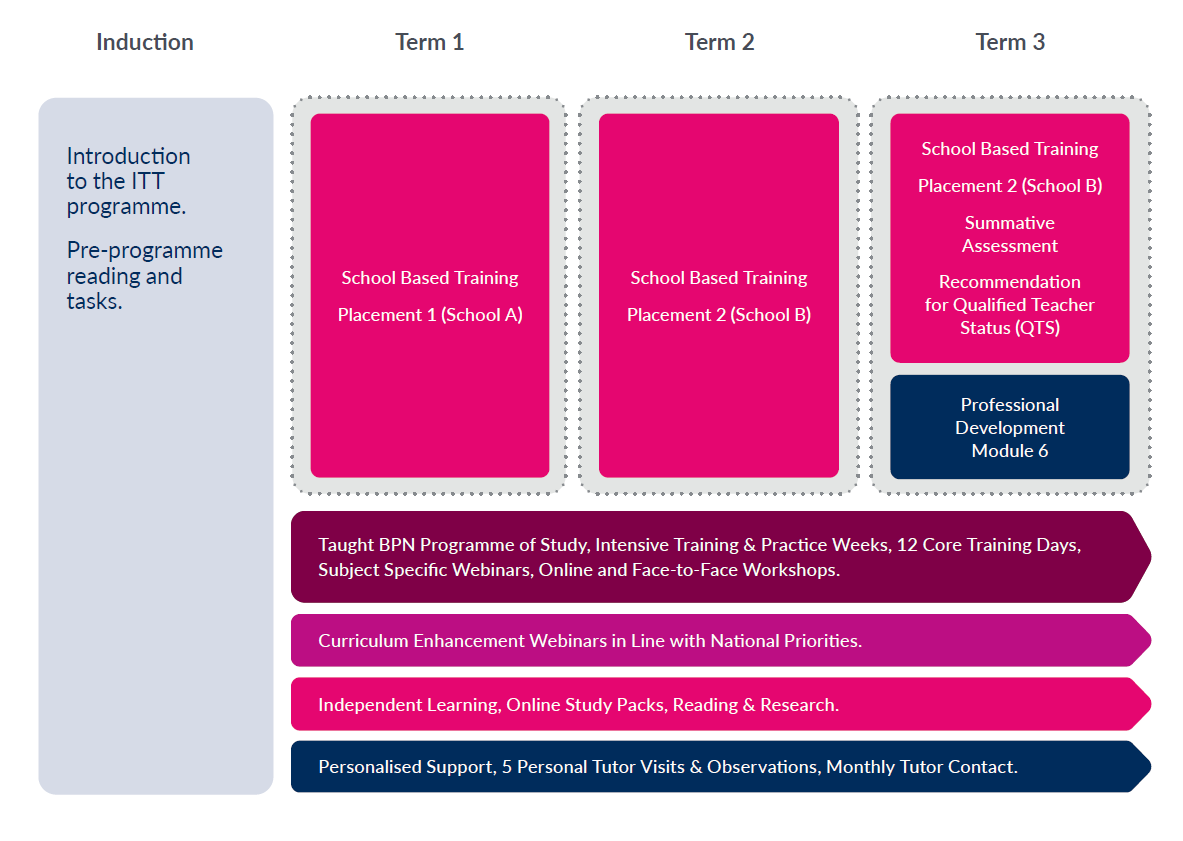

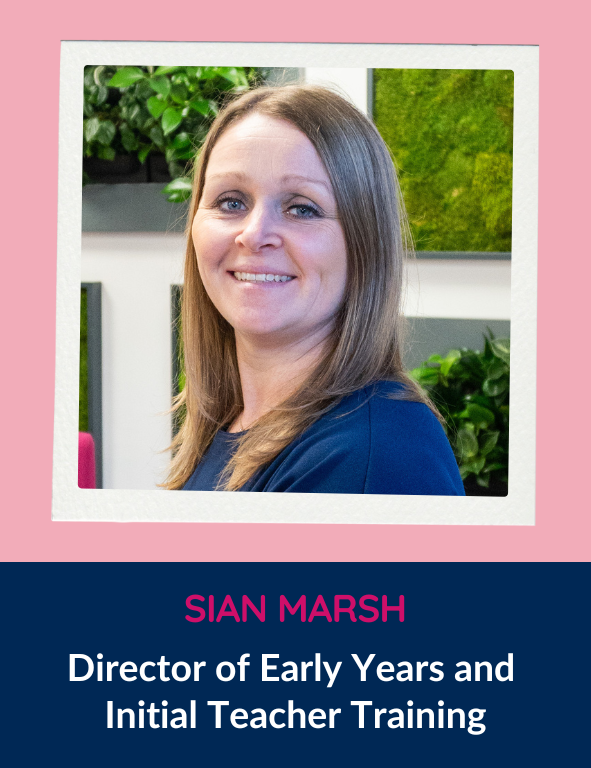
.png)
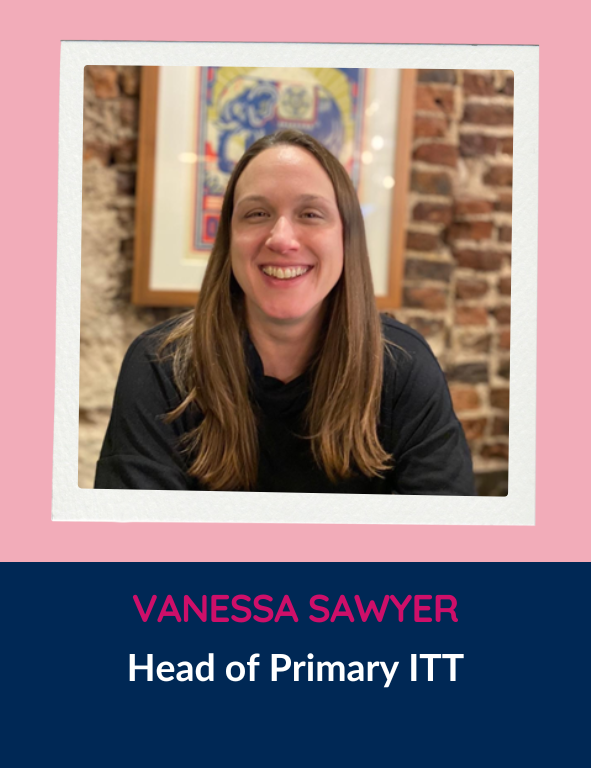
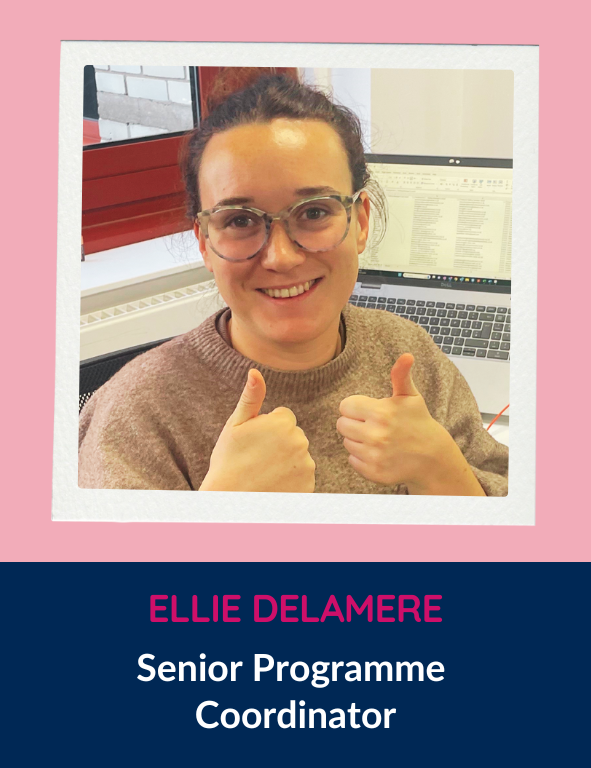
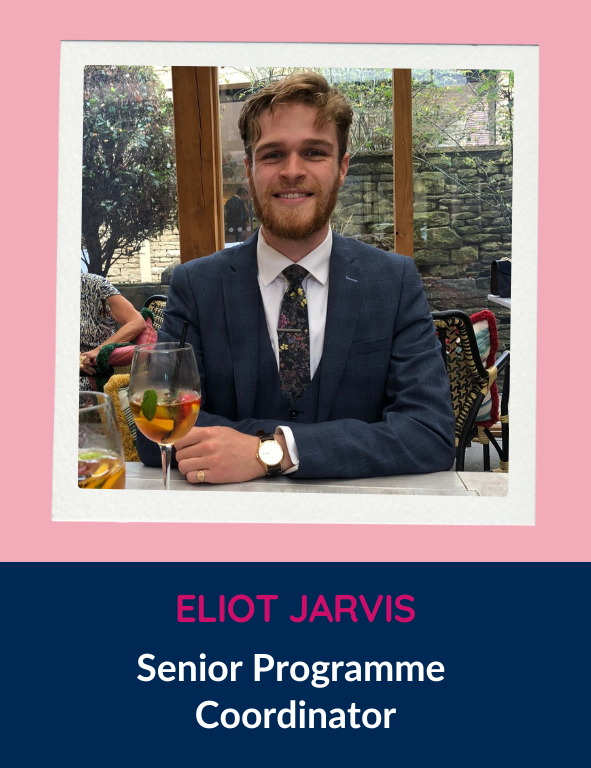

.png)
.png)

.png)